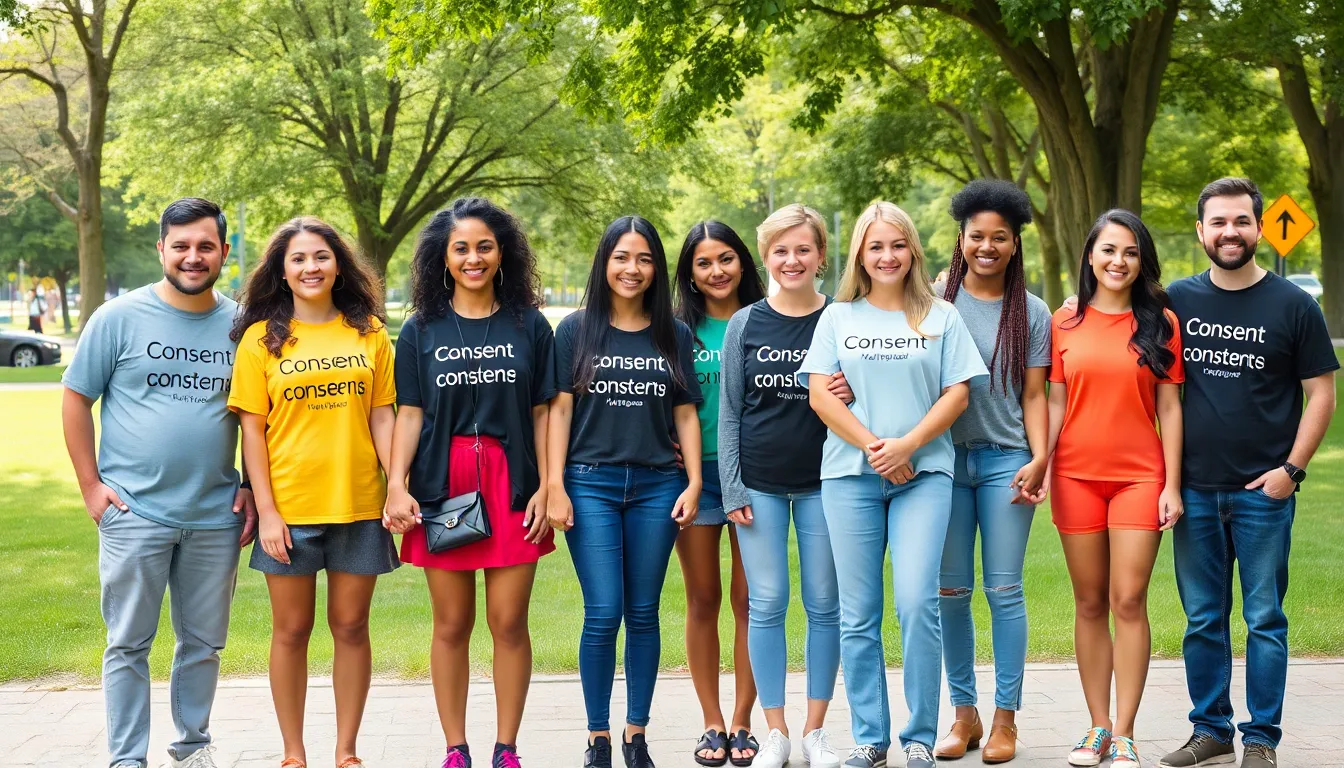National Rape Day is a term that raises eyebrows and stirs emotions. Many might wonder why such a day even exists. Spoiler alert: it doesn’t. The concept is a cruel hoax that circulates online, often intended to provoke fear and misinformation. Instead of marking a day of awareness, it highlights the urgent need to educate ourselves about consent and sexual violence prevention.
In an age where misinformation spreads like wildfire, it’s crucial to separate fact from fiction. Understanding the realities of sexual violence can empower communities to foster safer environments. So let’s dive into the truth behind this term and discover how awareness and education can make a real difference. After all, knowledge is the best weapon against ignorance.
Understanding National Rape Day
National Rape Day is not an official observance. Rather, it emerged as a misleading viral concept aimed at spreading misinformation and fear. Many people mistakenly believe that this day exists to provoke discussions around sexual violence. In reality, it does not serve a constructive purpose or promote meaningful dialogue.
Awareness about sexual violence and consent remains crucial in today’s society. Education plays a significant role in dismantling myths and misconceptions surrounding these issues. Engaging in conversations about consent helps create a safer environment for everyone. Recognizing the importance of consent reduces incidents of sexual violence and fosters healthier relationships.
A well-informed public stands as the best defense against harmful myths. Dispelling false information contributes to a society that prioritizes understanding and respect. Resources like educational campaigns, workshops, and support groups empower individuals to act against sexual violence. Communities thrive when members actively seek knowledge and promote awareness.
Combatting misinformation requires vigilance and responsibility. By sharing reliable information, individuals can counteract the harmful effects of concepts like National Rape Day. Promoting discussions about real issues surrounding sexual violence cultivates awareness and insight. Educators, activists, and survivors significantly contribute to this vital conversation.
In the end, focusing on factual information and educational resources ensures a more informed society. Understanding the realities of sexual violence equips individuals to challenge misconceptions effectively. Prioritizing education about consent and sexual violence prevention strengthens communities and contributes to safer environments.
The Origins of the Date

The term “National Rape Day” emerged as a social media hoax, gaining traction in recent years. Individuals spreading the concept incorrectly associate this date with an official observance. Misinformation campaigns often attempt to create fear rather than promote healthy discourse on sexual violence.
Viral content often lacks credibility, making it essential to distinguish between facts and hoaxes. Promoting awareness of consent has far more significance than perpetuating a misleading narrative. Many advocates focus on educating the public about sexual violence, aiming to transform conversations around this critical issue.
Statistical data indicates that raising awareness can reduce incidents of sexual assault. Conversations centered on consent and respect create safer environments. Experts emphasize that the real purpose should be to foster understanding, not to propagate fear-driven messages.
The concept itself lacks a factual basis, resulting in confusion and misinterpretation. Recognizing the absence of legitimacy helps communities focus on effective solutions instead of false claims. Overall, it’s important to prioritize factual education and reliable resources while addressing sexual violence and its prevention.
Social Implications of the Day
Misinformation surrounding National Rape Day impacts societal perceptions of sexual violence. Education and awareness play crucial roles in addressing this issue.
Awareness and Education
Raising awareness about sexual violence fosters informed conversations. Educational initiatives highlight the significance of consent and its implications in relationships. Schools and community programs offer resources that promote understanding and prevention. Statistics indicate that informed individuals are less likely to perpetuate harmful behaviors. Workshops and seminars can empower people to recognize warning signs and support victims. Greater knowledge translates into communities that prioritize safety and respect for all individuals.
Advocacy and Support
Advocacy efforts focus on promoting survivors’ voices and experiences. Organizations provide essential support services such as counseling and legal assistance. Each survivor’s story emphasizes the importance of creating an empathetic environment. Community involvement encourages collective action against sexual violence. Volunteers and activists collaborate to raise awareness and challenge misconceptions. Grassroots movements play a critical role in influencing policy changes and enhancing support networks. Overall, a robust support system fosters resilience and empowerment for survivors.
The Role of Society
Society plays a crucial role in shaping perceptions of sexual violence. Misinformation about concepts like National Rape Day fosters dangerous myths. Educating the public about consent and sexual violence can combat these misconceptions. Misunderstanding leads to stigma, which further silences victims. Accurate information can facilitate discussions that dismantle harmful beliefs.
Addressing Misconceptions
Myths surrounding sexual violence often distort reality. Public awareness efforts counter these false narratives effectively. Campaigns that spread accurate statistics reveal the truth behind these issues. Engaging communities in open discussions helps challenge longstanding misconceptions. Education materials can clarify consent and the impact of sexual violence on individuals and communities. Knowledge empowers people to recognize and reject harmful stereotypes.
Promoting Consent Culture
Fostering a culture of consent is essential for preventing sexual violence. Initiatives that emphasize clear communication strengthen interpersonal relationships. Safe environments encourage discussions about boundaries, allowing individuals to express their needs. Schools can integrate consent education into curriculums, reaching younger audiences. Support from community organizations enhances these efforts by providing training and resources. Creating a united front against sexual violence cultivates a society where individuals feel respected and valued.
Addressing the myths surrounding “National Rape Day” is vital for fostering a more informed society. By prioritizing education and awareness about consent and sexual violence, communities can dismantle harmful misconceptions that perpetuate fear and silence victims.
Engaging in open conversations about these topics not only empowers individuals but also cultivates a culture of respect and understanding. It’s essential to rely on credible information and support initiatives that promote survivors’ voices.
Together, through collective effort and commitment to education, society can create safer environments where individuals feel valued and respected.
